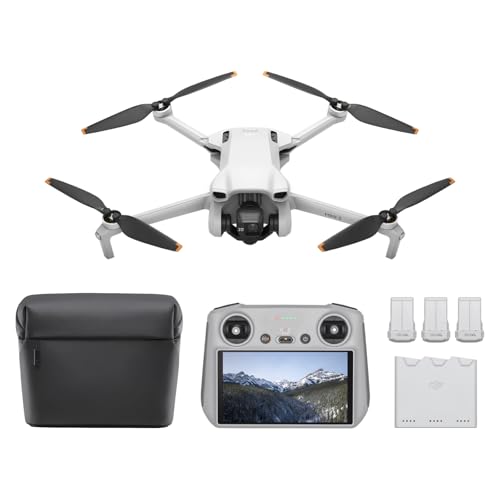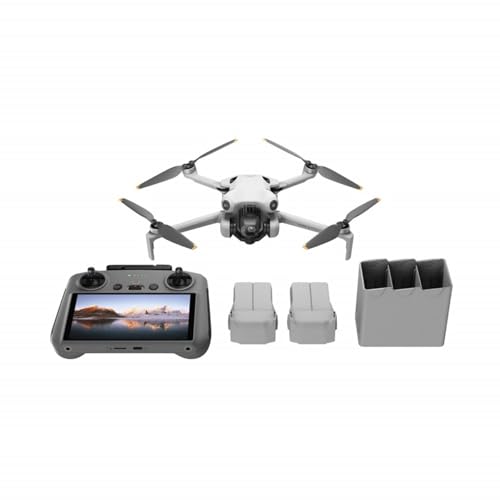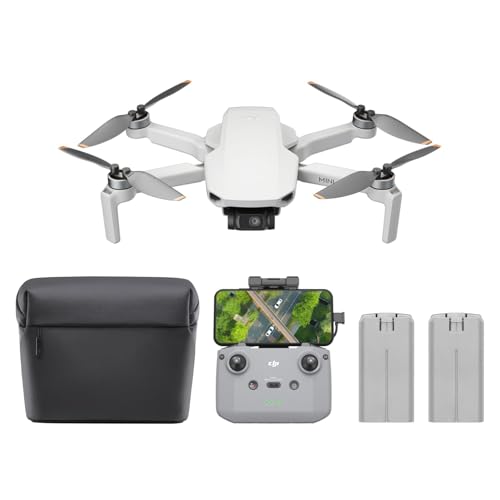So, you’re ready to launch your drone business – that’s exciting! Whether you’re planning on offering aerial photography, package delivery, infrastructure inspection, or something entirely new, you’ve got a lot on your plate. But before you take to the skies, there’s a crucial decision to make: what legal structure will your business take? Picking the best business entity for drone business isn’t just a legal formality; it impacts your personal liability, tax obligations, and even how you manage your operations.
It might seem daunting, but don’t fret! We’re here to break down the most common business entities, helping you understand which one could be your perfect match. Let’s dive in and explore your options.
1. Sole Proprietorship: Simple & Straightforward
[BUSINESS_ENTITY_IMAGE_1 – Placeholder for a simple, single-person business graphic]
The sole proprietorship is the simplest and most common business structure, especially for those just starting out. If you’re running your drone operations by yourself, you’re likely already a sole proprietor. There’s no legal distinction between you and your business – you are one and the same.
- Key Features:
- Easiest to set up and dissolve.
- Minimal paperwork and startup costs.
- You have complete control over all business decisions.
- Pros:
- Very low administrative burden.
- Profits are taxed only once at your personal income tax rate.
- No separate tax filings needed for the business itself.
- Cons:
- No personal liability protection: your personal assets (home, car, savings) are at risk if your business faces debts or lawsuits.
- Can be challenging to raise capital or attract investors.
- Business longevity is tied directly to the owner.
- User Impressions: Many solo drone operators appreciate the ease of starting a sole proprietorship, allowing them to focus on flight operations rather than paperwork. However, those experiencing growth or dealing with higher-risk projects often look to more protective structures.
- See if this fits your needs here (This is a placeholder as there’s no actual product for Sole Proprietorship, but for consistency in format).
2. Partnership: Sharing the Load
[BUSINESS_ENTITY_IMAGE_2 – Placeholder for a graphic of two people shaking hands]
If you’re launching your drone venture with one or more partners, a partnership might be the way to go. This structure allows two or more individuals to share in the profits or losses of a business. There are different types, mainly General Partnerships (GP) and Limited Partnerships (LP), or Limited Liability Partnerships (LLP).
- Key Features:
- Allows pooling of resources, expertise, and capital.
- Profits flow through to the partners’ personal tax returns.
- Requires a comprehensive partnership agreement outlining roles, responsibilities, and profit-sharing.
- Pros:
- Relatively easy to establish compared to corporations.
- Partners can contribute diverse skills and capital.
- “Flow-through” taxation avoids double taxation.
- Cons:
- In a General Partnership, all partners have unlimited personal liability for the business’s debts and obligations, even those incurred by another partner.
- Potential for disagreements between partners.
- Selling ownership can be complex.
- User Impressions: Partnerships are great for combining forces and talents, but users often emphasize the critical need for a solid partnership agreement to avoid future disputes and clarify liability.
- Explore partnership agreements here (Placeholder for a relevant link or resource).
3. Limited Liability Company (LLC): The Sweet Spot for Many
[BUSINESS_ENTITY_IMAGE_3 – Placeholder for a graphic symbolizing protection or a shield]
For many drone entrepreneurs, the LLC is often considered the best business entity for drone business. It combines the personal liability protection of a corporation with the pass-through taxation and operational simplicity of a sole proprietorship or partnership. It’s truly a hybrid that offers a lot of flexibility.
- Key Features:
- Provides personal liability protection, separating your personal assets from business debts.
- Flexible tax options: can be taxed as a sole proprietorship, partnership, S-Corp, or C-Corp.
- Fewer ongoing compliance requirements than corporations.
- Pros:
- Excellent balance of liability protection and operational simplicity.
- Credibility boost with clients and investors.
- Flexible management structure (member-managed or manager-managed).
- Cons:
- More complex and costly to set up than a sole proprietorship or partnership.
- “Self-employment taxes” may apply to your earnings.
- Some states require an operating agreement, though it’s always recommended.
- User Impressions: LLCs are highly favored by drone business owners due to the peace of mind offered by liability protection, especially given the inherent risks involved in drone operations (e.g., potential for property damage or accidents). The flexibility in taxation is also a big plus.
- Learn more about forming an LLC for your drone business (Placeholder for a relevant link or resource).
4. S Corporation (S-Corp): Tax Savings for Growth
[BUSINESS_ENTITY_IMAGE_4 – Placeholder for a graphic representing tax savings or a calculation]
An S-Corp isn’t a business entity itself, but rather a tax designation that an LLC or C-Corp can elect. It allows the business’s profits and losses to be passed through directly to the owners’ personal income without being subject to corporate tax rates. The key difference from an LLC taxed as a sole prop/partnership is how owner-employees are paid.
- Key Features:
- Avoids “double taxation” common with C-Corps.
- Allows owners to be paid a reasonable salary and then receive remaining profits as distributions, potentially reducing self-employment tax.
- Requires more formal operating procedures and bookkeeping.
- Pros:
- Significant potential for tax savings on self-employment taxes as your drone business grows and becomes profitable.
- Maintains the liability protection of the underlying LLC or Corporation.
- Enhanced business credibility.
- Cons:
- More complex to set up and maintain than an LLC or sole proprietorship.
- Strict IRS rules regarding reasonable salaries and distributions.
- Requires regular payroll processing and tax filings.
- User Impressions: Drone business owners who’ve reached a certain level of profitability often explore the S-Corp election to optimize their tax strategy. It’s often seen as a beneficial next step after establishing an LLC.
- Consult a tax professional about S-Corp election (Placeholder).
5. C Corporation (C-Corp): For Serious Growth and Investment
[BUSINESS_ENTITY_IMAGE_5 – Placeholder for a graphic showing a corporate building or growth]
The C Corporation is the most traditional and complex business structure, typically chosen by larger businesses or those looking to raise significant capital from outside investors. It’s a completely separate legal entity from its owners, offering the strongest liability protection.
- Key Features:
- Provides robust personal liability protection for owners.
- Ability to raise capital through selling stock to a large number of investors.
- Perpetual existence, independent of owners.
- Pros:
- Maximum liability protection.
- Best structure for attracting venture capital or going public.
- Provides employee benefits (health insurance, retirement plans) as tax-deductible expenses.
- Cons:
- Subject to “double taxation” – profits are taxed at the corporate level, and then again when distributed to shareholders as dividends.
- Most complex and expensive to set up and maintain, with significant regulatory compliance.
- Requires a board of directors, annual meetings, and extensive record-keeping.
- User Impressions: While generally overkill for most solo or small drone businesses initially, C-Corps are the go-to for drone startups with high growth potential seeking substantial external investment.
- Consider C-Corp if seeking major investment (Placeholder).
Essential Tool for Any Drone Business: Planning Your Flight Path
Regardless of which legal structure you choose, having a solid business plan is like having a flight plan for your drone operations – absolutely essential! It provides direction, helps you secure funding, and keeps you focused on your goals.
Drone Shop Marketing Plan and Business Plan

Every great drone business, whether a nimble sole proprietorship or a growing LLC, needs a well-thought-out strategy. This comprehensive kit provides the framework to not only plan your operations but also to market your services effectively. It’s more than just a document; it’s your roadmap to success, helping you articulate your vision, understand your market, and project your financial future. It’s a vital tool that helps you define your niche, identify your target audience, and set clear objectives, ensuring your drone venture doesn’t just fly, but soars.
- Key Features:
- 8 Chapter Complete Marketing Plan (MS Word)!
- Easy to Use MS Excel Marketing and Financial Models!
- Includes a 9 Chapter Business Plan (MS Word and MS Excel) – Full Industry Research – Investor/Bank Ready!
- Delivered as CD-ROM.
- Easy to Use Instructions for the Software and the Marketing and Business Planning Process!
- Pros:
- Provides a complete, professional framework for both marketing and business planning.
- Ready-to-use templates save significant time and effort.
- Financial models help in understanding profitability and securing funding.
- Comprehensive industry research included, which is invaluable for a niche market like drones.
- Suitable for presenting to investors or banks.
- Cons:
- Delivered as a CD-ROM, which might require an external drive for modern computers.
- Requires users to input their specific business details, which takes time.
- Might be more comprehensive than a very small, simple drone operation initially needs, but still beneficial for long-term vision.
- User Impressions: Users find the pre-built structure incredibly helpful, especially the financial models and industry research. It’s often praised for giving a professional edge when approaching lenders or partners. While the CD-ROM delivery is a slight drawback for some, the content itself is highly valued for its thoroughness and ease of customization.
- See it on Amazon here
Wrapping Up Your Business Entity Decision
Choosing the best business entity for drone business involves weighing personal liability, tax implications, administrative burden, and your future growth plans. For most new drone businesses, an LLC is often the ideal choice, offering a great balance of protection and flexibility. However, your specific situation, team size, and aspirations will ultimately guide your decision. Don’t rush it; consider consulting with a legal or tax professional to ensure you pick the structure that best supports your high-flying ambitions!
FAQ: Your Drone Business Entity Questions Answered
Q1: What is the most common business entity for a small drone business?
A1: For individual operators, a Sole Proprietorship is often the easiest to start. However, a Limited Liability Company (LLC) is increasingly popular and recommended for small drone businesses due to its balance of liability protection and operational simplicity.
Q2: How does an LLC protect my drone business?
A2: An LLC provides “limited liability protection,” meaning it legally separates your personal assets (like your house, car, or personal bank accounts) from your business’s debts and legal obligations. If your drone business faces a lawsuit or goes into debt, your personal assets are generally protected.
Q3: Are there specific legal requirements for drone businesses in terms of entity choice?
A3: No, the FAA (Federal Aviation Administration) regulations for drone operations (like Part 107 certification) apply to the operator, not necessarily the specific business entity. However, local and state business registration requirements will depend on your chosen entity. Regardless of entity, robust insurance for drone operations is crucial.
Q4: What are the tax implications of different business entities for drone operations?
A4:
– Sole Proprietorship/Partnership: “Pass-through” taxation; profits are taxed on your personal income tax return. You’ll pay self-employment taxes (Social Security and Medicare).
– LLC: Offers flexibility; it can be taxed as a sole proprietorship, partnership, S-Corp, or C-Corp, affecting how profits are taxed and self-employment taxes are calculated.
– S-Corp: Pass-through taxation, but allows owners to take a “reasonable salary” and distributions, potentially reducing self-employment tax.
– C-Corp: Subject to “double taxation” (corporate tax and then personal tax on dividends), but offers specific benefits for attracting large investments.
Q5: When should I consider forming a Corporation (S-Corp or C-Corp) for my drone business?
A5: You might consider an S-Corp if your LLC is generating significant profits, and you want to potentially reduce your self-employment tax burden. A C-Corp is usually only necessary if you plan to seek substantial venture capital investment or eventually go public, as it’s designed for scalability and attracting a large number of investors. Most small to medium drone businesses find an LLC sufficient.
Q6: Can I change my business entity later if my drone business grows?
A6: Yes, absolutely! It’s common for businesses to evolve their legal structure as they grow. For example, many start as a sole proprietorship, then transition to an LLC for liability protection, and later might elect S-Corp status for tax advantages. This process is often called “restructuring” or “converting” and involves specific legal and tax steps.
Q7: Do I need a business plan before choosing an entity?
A7: While not legally required, developing a business plan before finalizing your entity choice is highly recommended. Your business plan helps clarify your goals, projected growth, potential risks, and financial needs, all of which are crucial factors in determining the most appropriate business entity for your drone venture.



